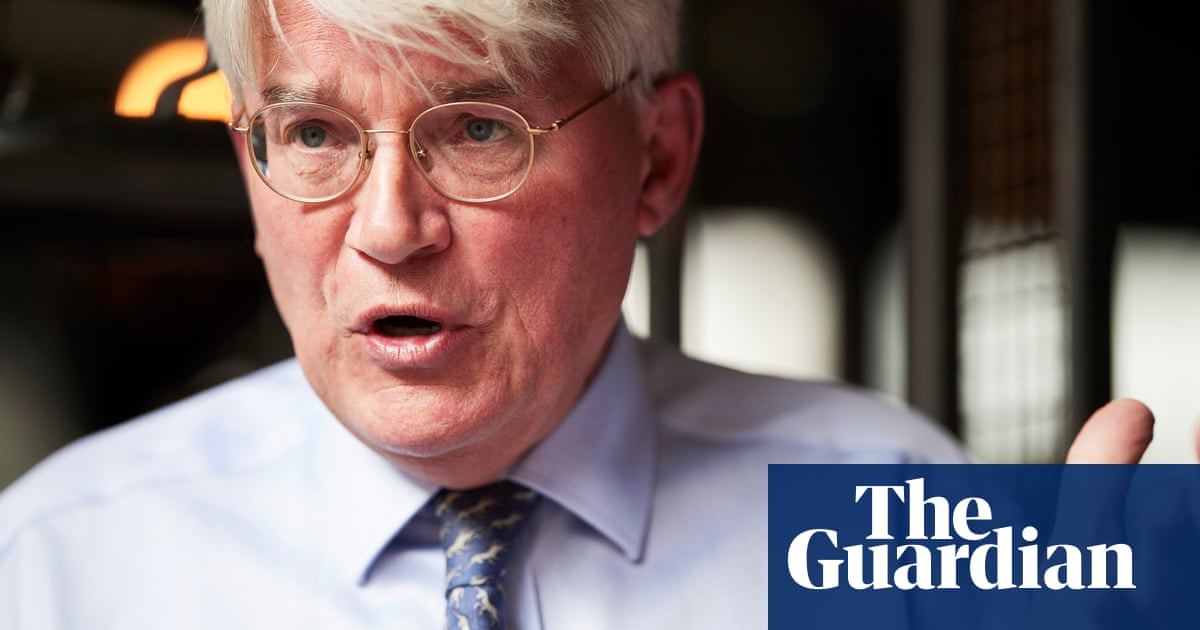
Sales of peat compost to gardeners will be banned from 2024, the government has said. Ministers will also give £50m to support the restoration of 35,000 hectares of peatland by 2025, about 1% of the UK’s total.
The UK’s peatlands store three times as much carbon as its forests. But the vast majority are in a degraded state, and are emitting CO2, which drives the climate crisis.
The environment secretary, George Eustice, announced £500m to fund a tripling of tree planting in England to reach 7,000 hectares a year by 2024 and said a new 2030 target for wildlife populations would be set. A species reintroduction taskforce was also unveiled, to take forward work on recovering species lost to England, such as wildcats and beavers.
Restoring peatlands and increasing woodlands are vital to tackling global heating and boosting biodiversity. In terms of wildlife and wild spaces preserved from human activity, the UK is ranked 228th in the world, out of 240 countries and territories, according to the RSPB.
“Peatlands are our biggest terrestrial carbon store and home to some of our rarest species,” Eustice is expected to say at a speech in Delamere Forest on Tuesday. “But only 13% of our peatlands are in a near-natural state [and] due to damage and degradation, our peatlands are emitting 10m tonnes of CO2 per year in England.”
In April, gardening experts, conservationists and scientists called on the UK government to ban the sales of peat compost by the end of 2021, after its goal of a voluntary phasing out by 2020 – set in 2011 – proved an “abject failure”. Eustice is also expected to set out plans to consult on phasing out the use of peat in horticulture.
Prof Dave Goulson, from the University of Sussex, said: “The [peat compost] ban must be meaningful and include the horticulture industry, and the importation of peat in potted plants. Anything less looks like greenwashing. Globally, peatlands store half a trillion tonnes of carbon, twice as much as the world’s forests. Unearthing this precious store of carbon is a needless ecological disaster.”
The government had already pledged to increase tree planting to 30,000 hectares a year across the UK by 2025, in line with the recommendation from its advisers, the Climate Change Committee.
In 2019-2020, 13,700 hectares of new woodland was created in the UK, with 2,300 hectares in England and 11,000 hectares in Scotland. Just a third of the Scottish forests were native species that best support wildlife, with the rest conifer plantations. In England, 90% were native species.
“It is our ambition that all woodlands in England will improve the environment, acknowledging that our woods and trees are vital habitats,” Eustice is expected to say. But the government has not said whether there will be a target for the proportion of native species in new woodlands.
Forestry is a devolved matter and the Scottish government aims to plant 18,000 hectares in 2024-25. But with relatively small areas of planting expected in Wales and Northern Ireland, it remains unclear how the 30,000 hectares a year target for 2025 will be met.
Tony Juniper, the chair of Natural England, said: “Restoring our peatlands, planting trees where they are most needed, and reintroducing species is a key part of aiding nature’s recovery. The measures being announced today bring a range of valuable dividends, for example improved public health and wellbeing, catching carbon from the air, helping us adapt to the changing climate, and providing healthy habitats for wildlife to thrive.”
The Green party MP, Caroline Lucas, said: “The first rule of tree planting to tackle the climate and nature crises should be to stop cutting down existing woodland. There’s been no evaluation of how much woodland might be lost to the £27bn roadbuilding programme and we are already seeing precious woodland being destroyed by vanity projects like HS2.”
In April, the Woodland Trust warned that the UK’s native woodlands were reaching crisis point, and that a drive to plant more trees would count for little if existing woods were lost.












